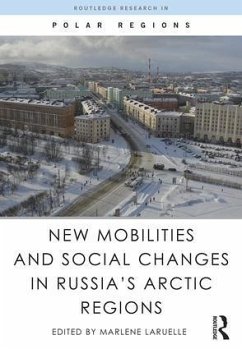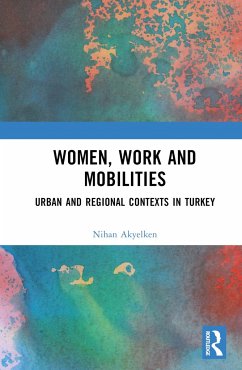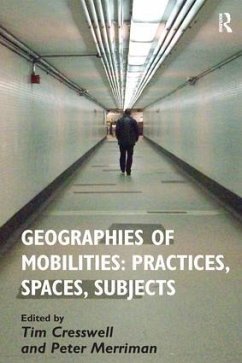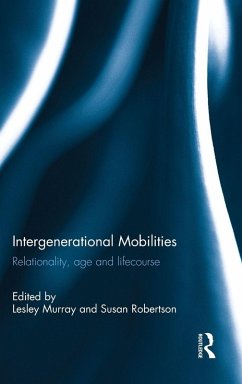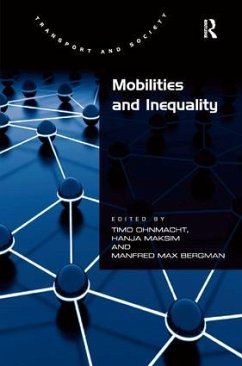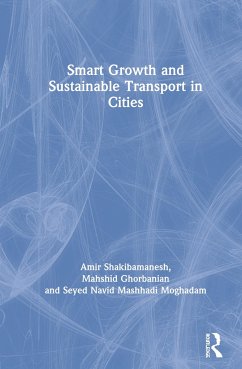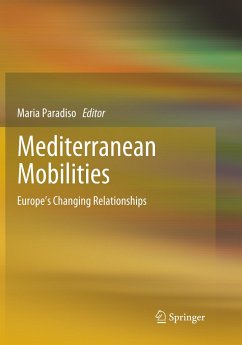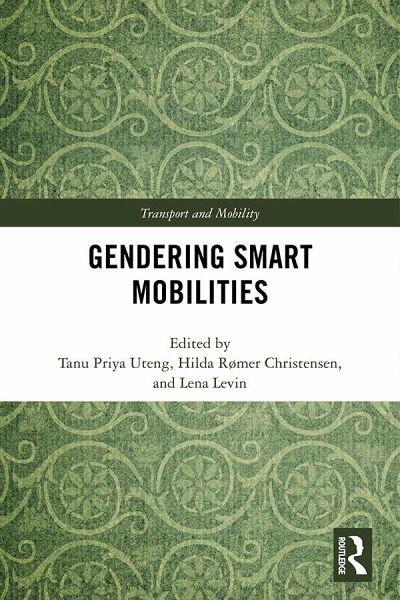
Gebundenes Buch
Gendering Smart Mobilities
Versandkostenfrei!
Versandfertig in 1-2 Wochen

PAYBACK Punkte
84 °P sammeln!




This book considers gender perspectives on the implementation of digital technologies and smart solutions to effectively provide 'mobility for all' in urban spaces. It does so while attending to the agenda of creating green and inclusive cities.
Tanu Priya Uteng (PhD) is Senior Researcher at the Institute of Transport Economics in Oslo, Norway. She has worked and published across a host of cross-cutting issues in the field of urban and transport planning over the past 16 years. Her works builds on cross-fertilising urban mobilities, transport-related social exclusion, gendered mobilities, travel behaviour studies, transport modelling, and inclusive planning. She is currently leading long-term strategic EU and Research Council pro-jects on designing inclusive urban spaces, first-last mile connectivity, climate change and transport planning, green-shift, and shared mobilities. Her previous edited works include Gendered Mobilities and Urban Mobilities in the Global South . Hilda Rømer Christensen (PhD) is Associate Professor and Head of Coordination for Gender Studies, University of Copenhagen. She also heads Gender Certificate, an interdisciplinary educa-tional initiative on Gender and Body Dynamics. She has written extensively on gender, culture, and more lately on gender in transport in comparative perspectives. She is currently leading a research project focused on World Dynamics in Micro Perspectives: (Re)making Middle Class Families, China and Denmark, including housing, mobility and transport, and is a scientific coordinator for the Horizon 2020 project TINNGO, focusing on gender, transport, and smart mobilities (2019-2021). Lena Levin (PhD) is Senior Researcher at the unit Mobility, Actors and Planning Processes (MAP) within the Swedish National Road and Transport Research Institute (VTI). She is also a participant at K2, The Swedish Knowledge Centre for Public Transport. Her research centres on how the trans-port system is shaped, developed, and utilised by actors with various interests, perspectives, and ascendancy (e.g. how policy is construed and implemented in planning processes; interaction between experts and citizens; and how participants interact in mobile settings). She is a partner of the EU project Transport Innovation Gender Observatory (TInnGO) (2019-2021).
Produktdetails
- Verlag: Routledge
- Seitenzahl: 320
- Erscheinungstermin: 21. Januar 2020
- Englisch
- Abmessung: 240mm x 161mm x 22mm
- Gewicht: 646g
- ISBN-13: 9781138608276
- ISBN-10: 1138608270
- Artikelnr.: 58449903
Herstellerkennzeichnung
Libri GmbH
Europaallee 1
36244 Bad Hersfeld
gpsr@libri.de
Für dieses Produkt wurde noch keine Bewertung abgegeben. Wir würden uns sehr freuen, wenn du die erste Bewertung schreibst!
Eine Bewertung schreiben
Eine Bewertung schreiben
Andere Kunden interessierten sich für



